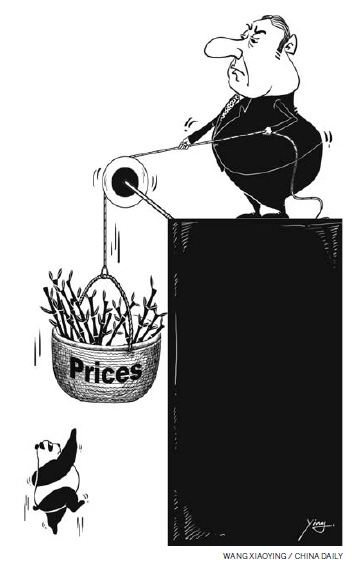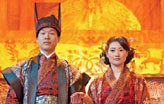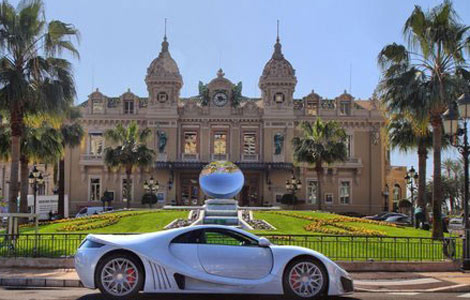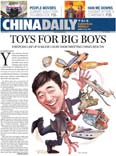Op-Ed Contributors
The risk of high capital flow
Updated: 2011-04-20 07:55
By Yilmaz Akyuz (China Daily)

During the early days of the subprime turmoil, then Citigroup chief executive Charles Prince said: "When the music stops, in terms of liquidity, things will be complicated. But as long as the music is playing, you've got to get up and dance. We're still dancing."
Indeed, international finance appears to have picked up the pace of the music in developing countries, including China. While many advanced economies continue to encounter debt deflation, financial stringency and risks of insolvency, developing countries are facing problems of asset inflation, credit expansion and currency revaluation. Except for a brief interruption in 2008, developing countries have been getting large capital inflows as major advanced countries respond to the crisis caused by excessive liquidity and debt by creating still larger amounts of liquidity to bail out troubled banks and governments, lift asset prices and lower interest rates.
Quantitative easing (QE) and close-to-zero interest rates are now generating a surge in speculative capital flows into countries with higher interest rates and better growth prospects, creating bubbles in foreign exchange, asset, credit and commodity markets.
This is the fourth post-war capital flow boom in developing countries. The previous booms also started under conditions of rapid liquidity expansion and exceptionally low interest rates in the United States, and all ended with busts. China is now a main destination of speculative capital.
During the subprime boom, emerging European economies received as much foreign capital as China and other developing countries in Asia despite their comparatively small economic size. Now, given the financial instability in Europe, investors have increasingly turned to Asia and commodity-rich economies. According to the Institute of International Finance, private inflows to China reached an all-time high of $227 billion in 2010. Despite restrictions, the State Administration of Foreign Exchange estimates that one-third of that was "hot money". And the share of overseas direct investment (ODI) in real estate was 23 percent, up 10 percent from 2006.
Although China's investment abroad has been increasing, too, particularly in commodity sectors, much of that has been absorbed in reserves, which are reported to have increased by almost $200 billion in the first quarter of 2011, exceeding $3 trillion in total. This is mainly because of the inflow of hot money as ODI remained moderate and China ran a trade deficit in the first quarter, the first time in seven years.
Unlike other major emerging economies in payment deficit such as Brazil, India, South Africa and Turkey, China has been able to moderate the revaluation of its currency. But this is giving rise to liquidity expansion because it is only partly sterilized. The combination of the surge in capital inflow and the massive stimulus package has been overheating the economy, creating inflation in property as well as product markets and posing the risk of a hard landing.
QE and close-to-zero interest rates in developed countries have been destabilizing China through the commodity channel. As the second largest importing country, China has no doubt been a major factor in the upturn of commodity prices since mid-2009. But this has been accentuated by increased speculation in commodity futures because liquidity, too, has been channelled toward commodity markets in a search for yield.
E-paper

Han me downs
Traditional 3,000-year-old clothes are making a comeback.
Reaching out
Fast growth fuels rise in super rich
Chinese tourists spend more
Specials

25 years after Chernobyl
Belarus, Ukraine and Russia will mark the 25th anniversary of the nuclear reactor explosion in Chernobyl.

Luxury car show
The world's most prestigious luxury, sports cars and supercars are displayed in Monaco.

Peking Opera revival
Traditional opera is enjoying a revival in Beijing thanks to some modern touches.
